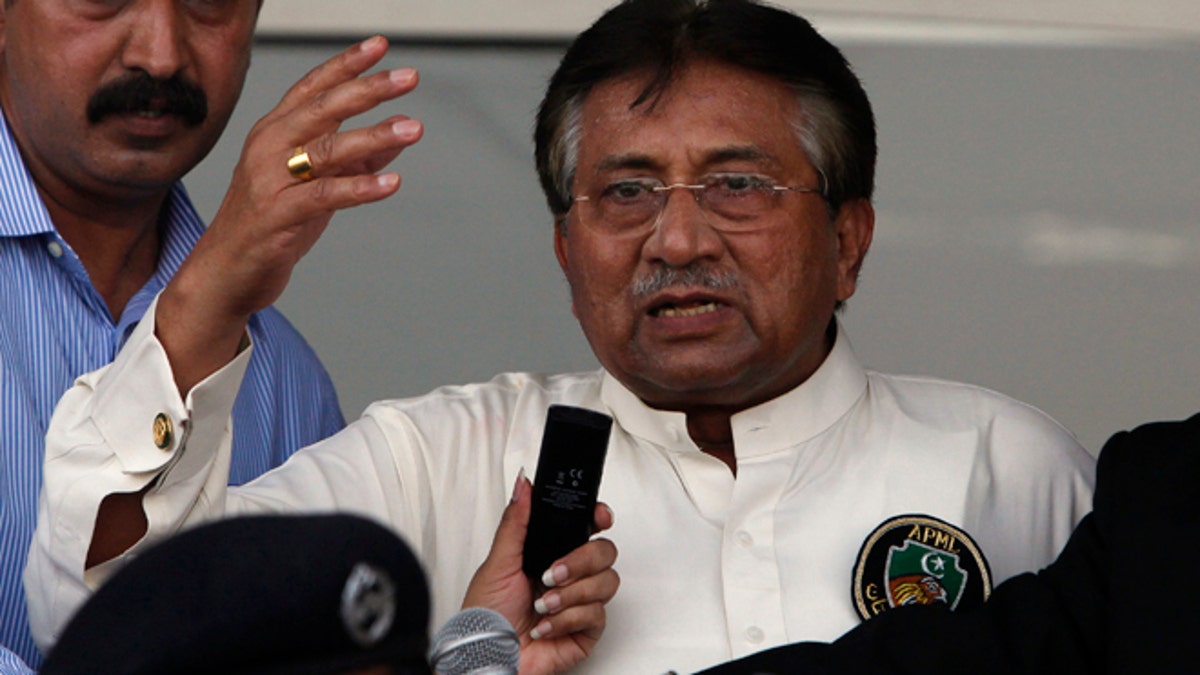
Former president, Pervez Musharraf, recently arrives at an airport in Karachi. Pakistan's former leader admits his regime had a secret pact to allow drone strikes in the country. (Reuters)
Pakistan's former president, Gen. Pervez Musharraf, admits his regime had a secret pact with the U.S. to allow drone strikes in the country.
"Only on a few occasions, when a target was absolutely isolated and no chance of collateral damage," said Musharraf, speaking to a US-based television network.
[pullquote]
Musharraf, who spent several years in self-imposed exiled after he resigned as president in 2008 in the face of political pressure and low public ratings, is running for the 2013 national elections. He also faces a court case of treason charges looming over his political desire to be democratically elected to power.
Pakistan has publicly condemned drone strikes, denied intelligence sharing with the U.S., and repeatedly protested the attacks as infringements on its sovereignty.
- Pakistan General: Taliban ‘Lost’ Border Stronghold
- Pakistan Opposition Chief Warns of Dangerous Chaos
- Homicide Bombs Kill 24, Injure More Than 200 in Pakistan
- U.S. Deaths in Afghanistan Spike Since January As Thousands More Troops Deployed
- Pakistan Won’t Speculate on Bin Laden
- Four Killed After U.S.-Leased Plane Crashes in Afghanistan
- U.S. Plans Joint Military Operation Along Afghan Border
- Afghan Prisoners Vow to Continue Terror Attacks After Release
"I can't comment on what former president has said. Only he can elaborate. Pakistan's position on drone strikes is clear that these are counterproductive," Ministry of Foreign Affairs spokesman, Aizaz Chaudhry, said to Fox News.
A majority of the drone activity takes place in the restive North West tribal areas, considered a safe haven for Al Qaeda and several militant groups that operate between Afghanistan Pakistan’s porous border region and launch attacks on U.S. and NATO forces.
The U.S. has conducted more than 350 drone strikes in Pakistan since June 2004, the first of which killed Nek Muhammed Wazir, in South Waziristan, who was harboring Al Qaeda members. Statistics indicate more than 3,300 casualties have resulted from the drone campaign.
A high-ranking security official requesting not to be named told Fox News, "We haven’t given any sort of permission to CIA in the last five-six years, and there is no past record or documented evidence indicating our consent to these strikes."
Another security official explained that if there was a secret deal or agreement, then Musharraf is exposing matters of national security - which is a crime.
With the 2014 U.S. drawdown in Afghanistan coming closer, and strained relations between America and Pakistan, the former president’s comments could further inflame tensions between both countries.
